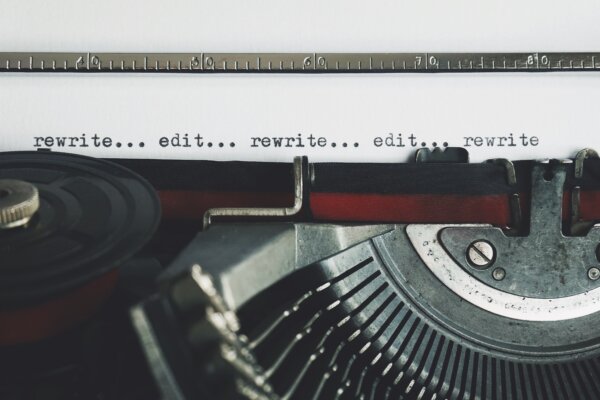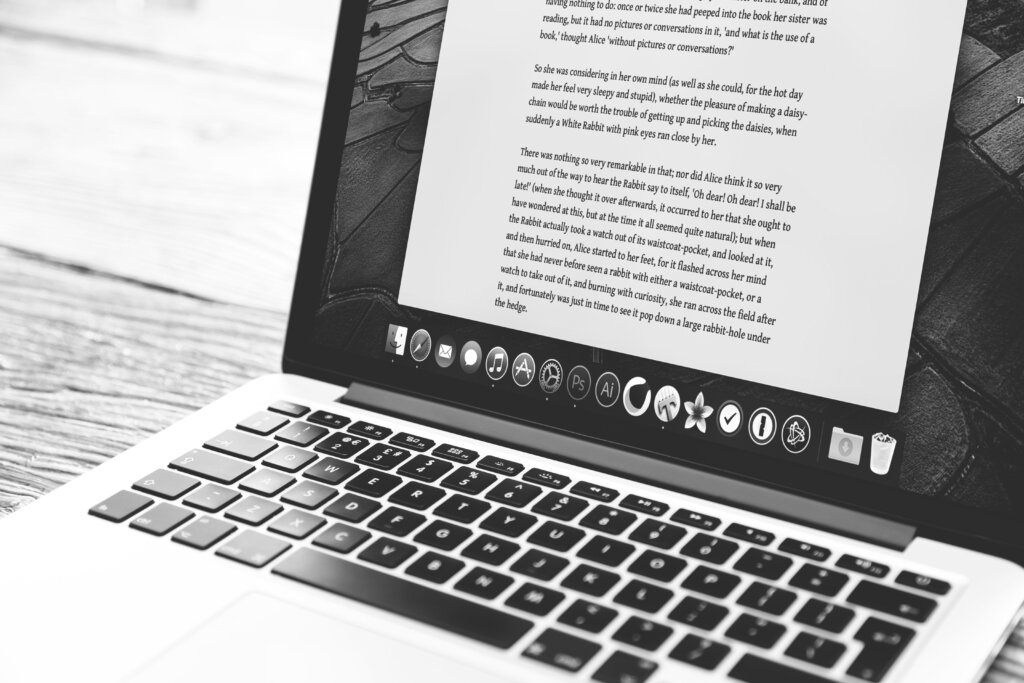6th November 2023
Listen
Listen

It is widely known that the Publishing industry is a notoriously difficult one to crack into. While people will say you do not need a degree in anything related to becoming a published author, there is evidence that having this kind of experience can be vital to attaining this dream job. An article from The Guardian shows much agreement on this, with many alumni of Creative Writing and Publishing courses showing their support for the experiences they gained from their degrees.
Rachael Bradley, a graduate of Creative Writing, has recently become a published author with her debut novel set to be released very soon. I spoke to her on her views as an author and her suggestions for those trying to get into the world of writing.
I studied creative writing at Roehampton University down in London. I studied from 2017 to 2020 and had to finish my degree from home during the first lockdown.
In some ways yes. Before uni I’d write short stories and send my work to competitions, but I had no idea how to take the next step. My uni course was three years, and in that time I definitely grew and developed as a writer. There was a particularly useful module in my third year called ‘Business of Writing’ where I had to write a cover letter (as if I was sending it to a publisher). This is something I used when I submitted my novel to my publisher and something I wouldn’t have known without uni.
I learnt a lot of useful things at Roehampton, particularly in my final year there. We had weekly panels with people from all over the industry, allowing us to hear other people’s stories, network, and ask questions. Something else I heard about was the ‘Writers’ & Artists’ Yearbook’ which has an up-to-date list of publishers, agents, and is packed full of tips. A new one is released every year and it’s valuable for any aspiring writer – definitely worth buying! Some of these things I might’ve been able to research if I hadn’t gone to uni. But hearing it from my lecturers who were all published and successful writers themselves definitely steered me in the right direction. It set up a foundation for me to work off.
From my early teens I did, but not as a child! As far back as I can remember I would go to the library every week and take a bag full of books home. I’ve always been a keen reader and at one point I used to read and review unpublished books through my local library. When I was around twelve or thirteen, I used to make up a story every Wednesday for my little brother who would’ve been two or three. It was off the top of my head, but it rhymed and was very silly. There was a different adventure every week! I did this almost every Wednesday until I moved away to uni.
At some point along the way, I realised that I wanted other people to read my stories. I had an English teacher in school who encouraged me in creative writing and once said she’d look out for my books in bookshops in the future. It was after that when I considered that maybe I could actually pursue a career in writing. This feeling grew and became my dream. My initial plan was to write children’s picture books, but that’s on the backburner while I’m getting my novel published.

It’s a very long process! It’ll vary depending on your individual circumstances but for me, I started the novel towards the very end of my final year of uni in 2020. I had to write three chapters of a longer novel for one of my assignments in my novel-writing class. I decided that I wanted to finish it and try to get published.
For the next year and a half, I was working full time from home and didn’t have a lot of time. I’d do some when I could, but it was slow progress.
I was over half-way through writing my novel when I sent the first few chapters to the publisher and decided to make my writing a priority over work. I was working a part-time job that freed my afternoons for writing.
A few weeks later, I heard that they were interested and wanted me to send the full novel through when it was finished. This was so exciting! But I had a lot of work to do before it would be ready, so several afternoons a week I’d dedicate to writing.
In September 2020 my contract at my part-time job came to an end and I decided not to renew it. Instead, I prioritised getting the novel finished. I spent just over two months finishing, editing, and proofreading the novel before I sent it back to the publisher (mid-November 2021).
A few weeks later they offered me a contract and I spent a couple of weeks researching, asking questions, and learning about contracts before I signed.
Now there are cover designs, editing, proofreading, publicity, and more that needs to be done. There’s a lot of discussion between myself and my publisher. They ask my opinions and involve me in the process the whole way. My next step is when they send the edits through, I’ll read through, look at and approve changes they’ve suggested. I’m not expecting my book to come out until the end of this year or even next year. It’s been a long time from starting chapter one to when it’ll be available to buy. I’m hoping novel two will be significantly faster now I’ve finished one. I now know little things like how much I can realistically do in one sitting and what type of planning works best for me – which is writing everything on a huge white board.
I’d have to say Thriller or Young Adult dystopian. I really enjoy books with a twist and I always try to guess the ending from the start. Books that surprise me are my favourites. After studying writing, I can sometimes guess what’ll happen in a book which takes some of the fun out of it, so I love it when I guess completely wrong. This is definitely something I want to write into my own books and something you might see in my upcoming novel ‘A Second Chance’. But overall, YA books have been a favourite of mine for years. I have so many that I’ve re-read because I enjoy them so much.
I love to imagine that my words and my books might make someone smile. That they’ll one day be found in a library just like the books I grew up with. There’s also a lot of room for creativity – it’s my thoughts and ideas, so I can explore and write with a lot of freedom.
As well as that, it’s something that I like doing. While there’s a sense of ‘work’ in being strict with my time, I enjoy each day and feel lucky that I get to do what I love. No two days are the same and it’s the most satisfying thing to see your story coming together and finishing it. I can’t wait to hold a physical copy of my book for the first time!
This is almost impossible to answer, I could name dozens of favourites! If I had to choose just one, I’d have to say Derek Landy is my favourite author. His final book comes out this year, and his first one was 15 years ago so I’ve grown up reading them. The protagonist in my favourite series ‘Skulduggery Pleasant’ is a strong female character who is a similar age to me, and a very cool, inspiring, and complicated character. You get to grow up with her as she deals with all sorts of problems and relatable issues.
I’ve read his whole series many, many times. Every time, even though I’m so familiar with the stories, I still get invested, laugh, and get upset. I won’t talk about anything specific in case I spoil it for anyone but there are some very emotional scenes.
I’m just about to start re-reading the whole series again before the final book comes out. I’m going to his signing in Liverpool in April, I can’t wait for the last book! But it’ll be bittersweet that there won’t be any more of the series in the future.

I’d say research the publisher before you approach them. Look at what they’ve published recently and make sure your writing fits in with them. You should have a good idea of what’s currently on the market. Knowing how your work would fit in with that, like is it a unique idea, does it fit with themes that are popular at the time, etc.
I included a reference to a book my publisher had released in my cover letter and said I thought they’d like my book because they published this other one which is similar. If you look on websites for publishers, they often say what genres they’re looking for. They may have email addresses or places where you can submit your work. There’ll also be guidelines for what they expect – such as font size, line spacing etc. It’s worth checking these and formatting your work right or they might not even look at it.
Getting the Writers’ & Artists’ Yearbook will be helpful, it has contact information and so much useful tips and advice. Also, go online. Check a publisher’s social medias – they sometimes post to advertise that they’re open to submissions. Facebook, Twitter, and Instagram are great to do research, find out what the publisher is currently doing and read reviews.
I’d probably say the best way to submit will depend on the publisher. Some will have an email address and others will have a form on the website. I think you can post your work but it’s expensive and not so good for the environment to print out huge novels. I’d also say, as a more general tip, read and write loads. The more you read and the more you write, the better your writing will be. And when you do approach a publisher for the first time, make sure you’re polite, clear, and following any guidelines they’ve set.
Ooh yes! It’s a young adult book, following the life of a 17-year-old girl called Evie. She’s desperately unhappy – she failed her driving test again, she’s getting bullied in school, and her dad is the worst. If that wasn’t enough to deal with, her great-grandad Charles (who died on Everest in 1974) has come back to life. As the ice on Everest has been melting, his body has thawed and he’s woken up as if no time has passed. Except it’s now almost half a century in the future. His wife and daughter have passed away and he doesn’t recognise the world that’s now full of technology he couldn’t have dreamt of. All he has in the world is the clothes on his back and Evie’s family – consisting of Evie’s mum, dad, sister, and Evie. You’ll have to read the book to find out what happens next!
I’m currently working on novel two, which is set in the same world as the first one. When Evie’s great-grandad Charles came back to life, he was one of eight people in that situation. They are known as the ‘Everest Eight’ throughout the books. So, my second book follows a lady called Rosie who was also rescued off Everest and had been dead for decades. Rosie’s fiancé and twin sister have changed quite a lot in the decades since she last saw them. The world is almost unrecognisable to her. As of right now, I’ve got the first few chapters done. I’m planning where I want the rest of the story to go before I continue writing.
I’m working as a Content Writer as my day job. I’m due to go traveling in the summer so I’m hoping to finish this novel by the end of 2022. In a perfect world, as my first one is coming out, the second one will start the long process of being published. Then I can start work on whatever is next. Beyond that, I want to one day write children’s books and maybe write a novel in a totally different genre.
I’m no expert, but there are a few things I’d say to anyone trying to get published. Some of them are from personal experience, and some are tips I’ve heard that I found useful.
Sometimes you’ll hit a wall and not want to write. I’ve had days where I question if my story is any good, my characters. I even question myself as a writer. This is normal, but you have to push through and carry on. If I was struggling I’d have a day off, open a new document and write something unrelated. Or I’d write just a few sentences which was better than nothing.
Sometimes I find that I’ll stall and don’t know what direction to go in next. I think sleeping on it, or even putting it down for a week can give you more clarity. Having time between writing and editing is also beneficial – otherwise, you get so used to it that you miss things.
They have a separate copy for children’s books too. It’s useful to find tips and information all compiled in one place. It’s been referred to as the Bible for writers.
I think you come across better and make a good impression. For example, follow up with a thank you email after you get a reply and don’t use text speak. You’re essentially selling yourself as well as your work to the publisher. Reply within a reasonable time frame too, if you wait for weeks then you might be forgotten.
This is something I learnt in uni. Lines that catch the reader’s attention are more likely to make the reader carry on. It can be the difference between a publisher reading on or deciding the story isn’t for them. Author Anthony Horowitz read the first line of my novel during a masterclass at uni and liked it. He stressed the importance of a strong opener too!
Everyone is on a different path and takes different amounts of time to get published. Good luck!
Follow Rachael on her Instagram and Twitter pages to keep up to date with her writing, and keep an eye out in bookstores for her debut novel.
Feature Photo by Suzy Hazelwood from Pexels